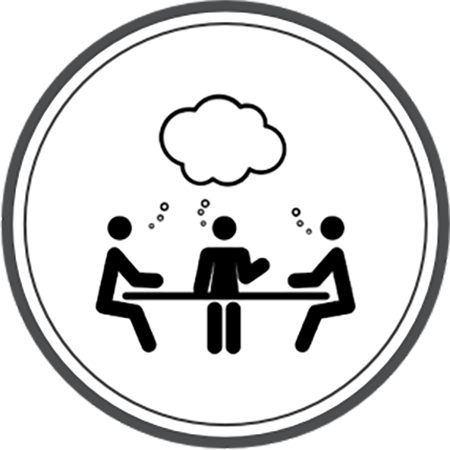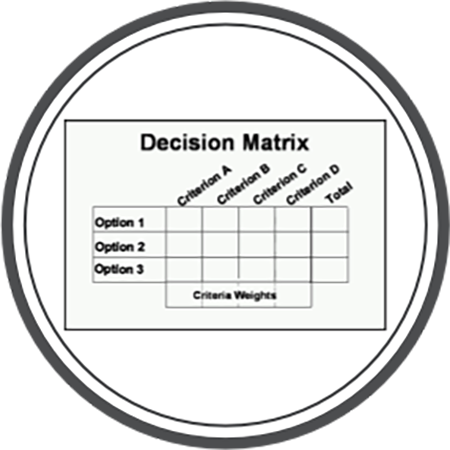What Is It?
A cognitive decision analysis methodology that generalizes and assesses an opponent’s complex decision problem from the actor’s perspective so the effects of an actor’s perceptions, interests, trade-offs, and priorities can be systematically examined.
How Can Decision Analysis Help You?
Highlights the interests (cost, feasibility, impact, risk) an actor seeks to optimize, what drives his choices, who he perceives the players are in the decision problem, potential actions an opponent will consider, and the implications of divergent perceptions.

Problem Identification
Define and specify the decision analysis problem avoiding simplifying heuristics and biases including cognitive proximity and analogizing between the current situation and past historical events.

Options Discovery
Create subjective decision matrices for all actors and decisions to be studied using data on the event to be analyzed, relevant actors, and their perceptions of the event and other actor perceptions.

Alternatives Evaluation
Evaluate alternatives across the problem space; explore and make revisions to ensure accuracy, relevance, and adequacy of the information; and avoid cognitive tension associated with value trade-offs.

Decision Choice
An articulated commitment to a course of action is chosen, which represents the conclusion of the decision process itself, along with considering how that choice is transformed into an action.
Learn More
To learn more about how Decision Analysis is used in our client solutions, visit: Decision Analysis Applications